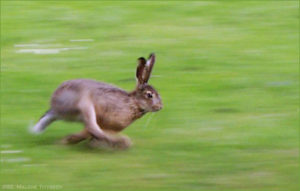Experts from the University of Hull are investigating the impact biofuel crops has on farmland and hares.
The research based in North Yorkshire will monitor how planting a biofuel crop will affect the hares behaviour. Elephant grass will be planted and the hares tracked to see whether they select or avoid the crop. Dr Phil Wheeler said the affects of agricultural change need to be understood to ensure it results in “sustainable management” of farmland.
He said: “As the elephant grass grows up, it’ll get taller and it will start to shade out some of the potential hare forage crops, certainly as it grows up it will also provide increasingly good cover for them and the extent they use if for cover and for food will probably change.
[ad]
“What we’re interested in is how the balance between those two things affect hares and how hares use this landscape.”
Biofuel is made from living things or from the waste they produce helping to reduce greenhouse gas emissions in comparison to conventional fuels.
The government is currently subsidising farmers to plant biofuel crops to help meet renewable energy targets.
Dr Silviu Petrovan said: “It’s extremely important we don’t make the same mistakes as we have done in the past where land transformation has resulted in huge and profound changes and losses in our bio-diversity.
“There is a very good chance that if we get this right we might even get some benefit.”


